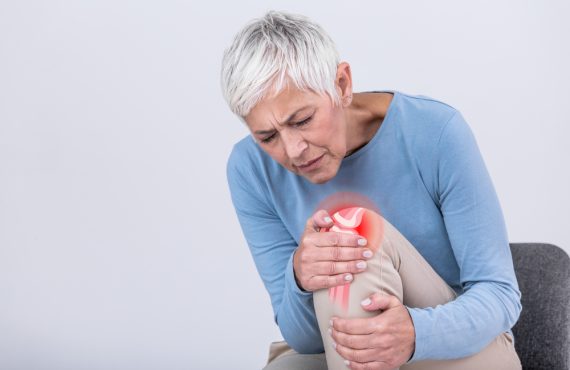Understanding Lyme Disease and Effective Treatment Options
As tick season rolls around, it’s natural to be vigilant about checking your pets for these tiny pests. However, it’s equally important to be aware of the risks ticks pose to you and your family.
Ticks can carry Lyme disease, a serious infection that affects thousands of people each year. The CDC estimates that about 476,000 people in the US are diagnosed and treated for Lyme disease every year. While early detection is key, ticks often go unnoticed, leading to potential long-term health issues.
Research shows up to 34 percent of Lyme patients still have symptoms after regular medical treatment. Many clinicians and scientists believe that the persistence of bacteria is the cause of these lingering symptoms.
What is Lyme disease?
Lyme disease is a serious bacterial infection that can have lasting effects if not treated early. While it can be completely eradicated if caught early, many times it goes undetected, leading to adverse effects on the body. There are treatments designed to treat these effects and improve the quality of life for patients suffering from Lyme disease. By understanding the symptoms and causes, and with the right treatment, individuals can regain their health and well-being.
“Lyme disease can be incredibly challenging, but with a personalized approach, we can tackle its effects and help patients regain their health and vitality. My ‘Back to Wellness Program’ is designed to address the unique needs of each patient, providing comprehensive care and support throughout their healing journey,” says Dr. Anju Mathur.
What Causes Lyme Disease?
Lyme disease is caused by a bacterial infection from a tick bite. Deer ticks or black-legged ticks are usually the culprits. These ticks spread the disease while feeding on the blood of animals and humans. If left untreated, it can spread to the skin, joints, heart, and nervous system, leading to nerve problems and arthritis.
The initial treatment involves antibiotics to combat the bacterial infection. Following antibiotic treatment, functional medicine protocols can safely and effectively address additional consequences of this illness.
What are the Signs and Symptoms of Lyme Disease?
The first sign of Lyme disease is often a rash called erythema migrans, which may resemble a bull’s eye. However, not everyone notices this rash. Lyme disease can be difficult to diagnose because its symptoms resemble those of the flu or other illnesses.
Early symptoms include:
- Flu-like symptoms
- Fever
- Headache
- Fatigue
- Muscle and joint pain
- Stiff neck
- Skin rash
If the disease goes undetected, more severe symptoms can develop, including:
- Joint pain and swelling
- Headaches
- Neck stiffness
- Meningitis
- Heart palpitations
- Dizziness
- Facial muscle atrophy
- Inflammation of the spinal cord
- Bell’s palsy (facial paralysis)
- Shooting pains that may disrupt sleep
What Happens When Lyme Disease Goes Undetected?
When Lyme disease is not diagnosed in the early stages, it can lead to chronic ailments such as neurological problems, severe joint pain, heart issues, severe fatigue, eye irritation, and liver damage.
In advanced cases, untreated Lyme disease can cause arthritis in large joints and neurological disorders.
Over 60 percent of patients with untreated Lyme disease experience arthritic pain.
In 15 percent of cases, Lyme disease affects the central nervous system. When it does, it is known as neurologic Lyme disease.
Testing for Lyme Disease
Diagnosing Lyme disease involves a two-step blood testing process. First, an enzyme immunoassay (EIA) is conducted to test for antibodies against the bacteria. If the EIA test is positive, a second test called an immunoblot is performed. For a Lyme disease diagnosis, both test results must be positive. Accurate diagnosis is crucial for effective treatment.
Personalized Healing Approach by Dr. Anju Mathur
Dr. Anju Mathur’s approach to treating Lyme disease is rooted in personalized care. She looks at each patient’s unique symptoms before designing an individualized treatment protocol. Using information from medical history, test results, current lifestyle habits, and individual imbalances, Dr. Mathur creates a functional medicine program tailored to each patient’s needs. She knows which therapies to select for specific health problems and customizes her approach to reduce and treat the effects of Lyme disease.
Dr. Mathur’s “Back to Wellness Program”
Dr. Mathur’s “Back to Wellness Program” utilizes the best functional medicine to help patients regain their vitality after Lyme disease. Her program includes various therapies designed to address the specific needs of each patient.
Key therapies in the program include:
- IV Nutrient Therapy: Provides essential nutrients to support a healthy immune system and overcome lingering symptoms.
- Phospholipid Exchange Therapy: Detoxifies the body at a cellular level, cleansing cells of systemic toxins and improving overall organ function.
- Chelation Therapy: Helps detoxify the body, improving immune system function and organ health.
- Ultraviolet Blood Irradiation: Cleanses the blood of harmful bacteria and viruses, reducing the effects of Lyme disease.
Early detection and treatment of Lyme disease are crucial for preventing chronic health issues. Dr. Anju Mathur’s personalized approach to treating Lyme disease can help patients overcome the challenges posed by this illness. If you or someone you know is suffering from symptoms of Lyme disease, consider seeking care from a specialist like Dr. Mathur to improve your overall health and wellness.
Learn more about one patients journey here :
“Because I had had Lyme for so long so I’d been kind of living with years of chronic fatigue and brain fogginess. The dizziness would go in and out… I couldn’t metabolize anything it just came to a point where I knew something was really wrong with my body I just didn’t know what was actually going on. There’s still some things we’re working on but the source of what’s caused me to be so sick for so long is now gone which is great.”
For more information or to schedule an appointment, please call (818) 961-2055






















